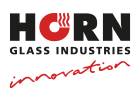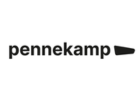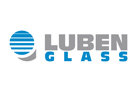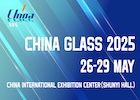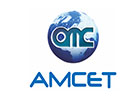Leading glass container manufacturer Encirc has successfully completed trials of rail transport of finished bottles using the railhead at its Elton, Cheshire site. The successful trial period represents a significant step in the company's ambition to create the most sustainable national drinks supply chain in the UK.
Emissions from distribution, part of Scope 3 emissions under the Greenhouse Gas Protocol, contribute significantly to the carbon footprint of container glass. While these emissions can often be considered ‘out of reach’ of efforts to decarbonise, Encirc has identified rail distribution as a potential solution to reducing Scope 3 emissions.
The manufacturer’s Elton railhead is currently used to deliver raw materials and recycled glass used in the production process. However, Encirc has earmarked it to play a crucial role in its plans to create an ultra-sustainable transport network for glass across the UK.
Adrian Curry, Managing Director of Encirc, explained: “The potential benefits offered by our Elton railhead are significant. A tonne of freight transported by rail produces 76% fewer carbon emissions compared with road haulage, so developing our rail capacity across the UK will enable us to vastly reduce our own carbon footprint and that of our partners.”[1]
Encirc has conducted three successful trials over the last two years, providing a workable framework for how the rail transport network will work in practice. Supported by WH Malcolm, MDS Transmodal and Cheshire West Council, the trials began in 2022 with the successful delivery of spirit bottles to a customer in Scotland and have most recently continued with the transport of bottles to the company’s newly acquired filling site, ‘The Park’, in Bristol.
Curry continued: “The rail network can have a transformative impact on the carbon footprint of our supply chain, and that has a direct effect on those of our partners. Each load of bottles and jars delivered by train is the equivalent to taking 66 lorries off the UK’s roads, an already sizeable reduction which we intend to scale up significantly in the long term, with 70% of bottles produced at the Cheshire site eventually leaving by rail.
“Looking in more detail at the product itself, introducing rail to the supply chain will significantly reduce the carbon footprint of the bottle across its full lifecycle, and therefore the emissions it passes onto the consumer.”
While Encirc recognises that not all of its customers will have capacity to receive deliveries by train, it is making strides towards intermodal transport where at least part of the journey is undertaken by rail rather than relying on road haulage exclusively.
The drive to decarbonise its distribution comes as the latest milestone in Encirc’s broad push to improve the sustainability of its operations, sitting alongside initiatives to vastly reduce Scope 1 and 2 emissions. It follows on from a plan unveiled last year with global drinks brand Diageo to create hundreds of millions of zero-carbon bottles in a new hydrogen-powered furnace by 2030.
Curry concluded: “We’re not afraid to be bold with our plans to decarbonise our own operations and that of the wider glass industry. Low-carbon furnaces will be central to this effort, but the impact of the supply chain is an area that’s often overlooked by businesses looking to reach net zero. We can do better with our supply chain without starting from scratch and make our operations a more positive influence in the supply chains of our partners and their customers.”
Encirc currently manufactures more than one in three of the glass bottles and jars used in the UK food and drinks industry. The company has a unique global offering, running a full wine and beverages filling operation at its two filling sites in Cheshire and Bristol.







